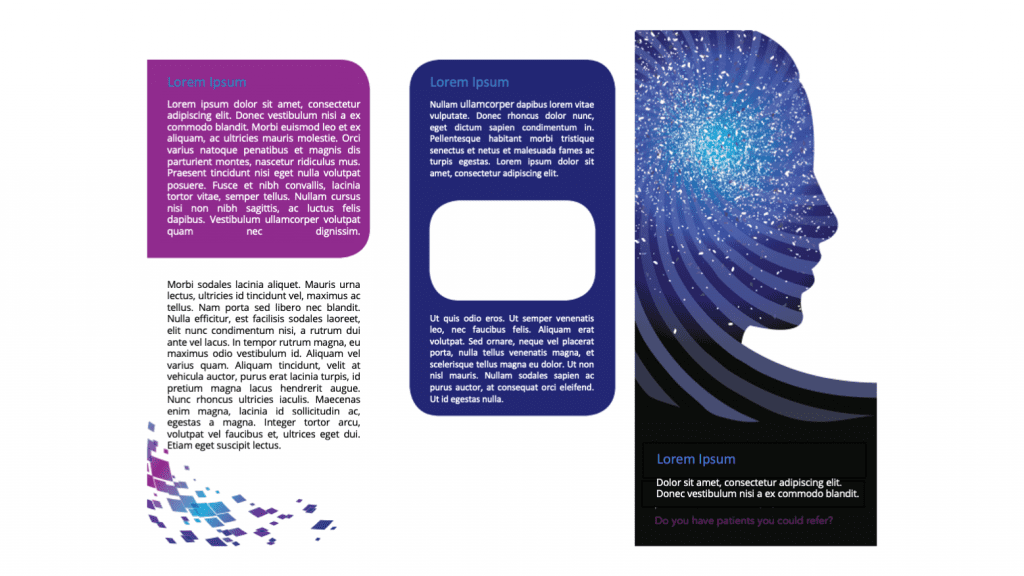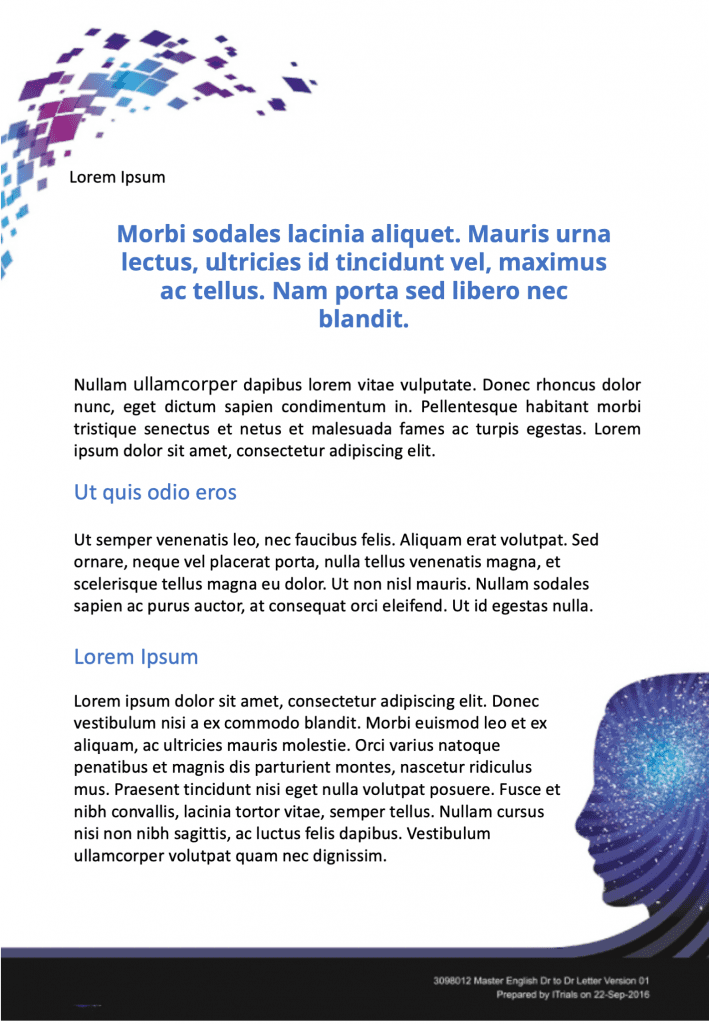World Alzheimer’s Month
Innovative Trials are passionate about ensuring our diverse population is adequately represented within medical research. Whether it is wanting to see more people from underrepresented communities choosing science as a career and pushing for greater patient diversity in clinical trials or focusing on what we are doing internally to celebrate and promote equality and diversity.
Throughout 2021, we have made a pledge to share our education and experiences with our clients and colleagues, to ensure inclusivity across the board. Each month we will be releasing communications in line with national and international awareness campaigns.
So far in our Awareness series, we have explored: Women’s Health; diversity in Cancer, Heart Disease and Scleroderma, Ovarian and Prostate Cancer, Autism Acceptance,Ramadan and Bowel Cancer, Stroke and Hepatitis, Mental Health, Pride month, Women with Alopecia and Psoriasis.
This month, we will be looking into dementia as part of our first September Awareness blog.
What is World Alzheimer’s Month?
World Alzheimer’s Month is an international campaign embraced by charities across the globe every September to raise awareness and challenge the stigma that surrounds dementia. World Alzheimer’s Month was launched in 2012, and includes World Alzheimer’s Day on 21 September.
What are dementia and Alzheimer’s?
There are a number of diseases that stop a person’s brain from working properly. When a person has one of these diseases, they may have problems remembering, thinking or speaking. They may say or do things that seem strange to others and find it harder to do everyday things. Doctor’s use the word ‘dementia’ to describe these different problems.
50 million people in the world are living with dementia right now.
When people get dementia, you may see some of these things happen:
- Forgetting recent events, names and faces.
- Asking the same questions, often in a short space of time.
- Getting lost.
- Finding it hard to pay attention or make simple decisions.
- Putting things in the wrong place.
- Finding it hard to use the right words or understand other people’s words.
- As dementia gets worse, people may have trouble speaking clearly or saying how they feel. They may eventually find it hard to eat, drink, wash themselves or go to the toilet without help.
Once someone has dementia, they will have it for the rest of their life because there are no treatments to cure the condition.
Alzheimer’s disease is the most common cause of dementia, responsible for around 60% of dementia cases in the UK. Just like other forms of dementia, Alzheimer’s is not a normal part of ageing, though our chances of developing the disease does increase the older we get. In Alzheimer’s disease, the changes which occur in the brain are different to the changes we see in normal ageing. Changes include a build up of proteins in the brain which damage more and more brain cells. This damage leaves the brain weighing around 140 grams less than a healthy one, changing how it works, causing dementia symptoms and eventually death (Alzheimer’s Research UK, 2015).
Every 3 minutes, someone in the UK develops dementia (Matthews, 2016)
Costs of dementia
Dementia is currently estimated to cost the UK economy £26 billion every year (more than cancer and heart disease combined) and the US economy an estimated $290 billion and the global economy an estimated $1 trillion (University of Exeter, 2019). However in 2017/18, the most recent figures available at the time of writing, UK Government funding was only £82.5million for research into dementia (UK Parliament, 2018). Research is crucial in understanding more about what happens in the brain during diseases like Alzheimer’s, and finding new ways to treat these diseases.
Innovative Trials and dementia
As we understand the impact dementia can have on society both on a human and an economic level we have decided to partner with Alzheimer’s Research UK for 12 months to support their “vision of a world where people are free from the fear, harm and heartbreak of dementia” (Alzheimer’s Research UK, 2021). Innovative Trials pledged to raise £5,000 to support Alzheimer’s Research UK across the year through several fundraising initiatives. Among those initiatives, Innovative Trials hosted a Lunch and learn session with the charity to raise awareness about dementia and present Alzheimer’s Research UK initiatives to all Innovative Trials Employees.
The session was well received and was a preamble to the Raffle Lottery for the charity which Innovative Trials held at the company summer BBQ on the 21st August 2021 in which £673 was raised.
Innovative Trials Case Study
Innovative Trials have successfully worked on an Alzheimer’s trial for one of our clients to test the efficiency of a new drug on some symptoms in patients with Alzheimer’s disease. The trial was a Phase II randomised, double-blind, placebo controlled, parallel group, multi-centre study. In this particular study, Innovative Trials supported the client with Material development services across 11 countries and 6 different languages. A branding identity was created for the study as well as both site and patient facing materials to aid patient engagement and recruitment. Innovative Trials support resulted in 175% increase in the randomisation rate after Materials development services deployment.

Case Study Patient leaflet

Case Study Doctor Letter
References/ Further Resources:
- Alzheimer’s Disease International. (2021). World Alzheimer’s Month. World Alzheimer’s Month. Retrieved August, 2021, from https://www.alzint.org/get-involved/world-alzheimers-month/
- Alzheimer’s Research UK. (2020, June). Alzheimer’s Disease. Alzheimer’s Research UK. Retrieved August, 2021, from https://www.alzheimersresearchuk.org/dementia-information/types-of-dementia/alzheimers-disease/
- Alzheimer’s Research UK. (2020, November). A quick guide to dementia. Alzheimer’s Research UK. Retrieved August, 2021, from https://www.alzheimersresearchuk.org/dementia-information/quick-guide-dementia/
- Alzheimer’s Research UK. (2021, January 31). Government funding for Alzheimer’s research drops to three year low. Alzheimer’s Research UK. Retrieved August, 2021, from https://www.alzheimersresearchuk.org/scott-mitchell-barbara-windsor-husband-supports-dementia-charity-call-on-government/
- ARUK. (2021). About Us. Alzheimer’s Research UK. Retrieved August 23, 2021, from https://www.alzheimersresearchuk.org/about-us/
- Matthews, F.E et al (2016). A two decade dementia incidence comparison from the Cognitive Function and Ageing Studies I and II. Cognitive Function and Ageing Studies (CFAS) Collaboration.
Equality, Diversity and Inclusion continues to be high on our agenda. We are working behind the scenes to push this forward. Keep your eyes peeled for more.
Find out how we’re working with clients to ensure greater patient diversity in clinical trials.
